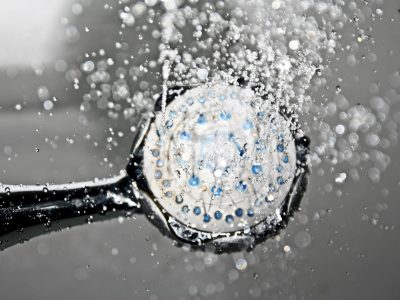Heat pump hot water systems (HPHWS) represent a significant leap forward in home energy efficiency, offering an environmentally friendly and cost-effective alternative to traditional electric or gas water heaters. This guide delves into the mechanics of how these innovative systems work, their expected lifespan, and the remarkable energy efficiency they bring to households.
How Heat Pump Hot Water Systems Work: Harnessing Ambient Energy
Unlike conventional water heaters that generate heat directly, HPHWS operate on a principle similar to a refrigerator, but in reverse. Instead of expelling heat, they extract it from the surrounding air and transfer it to the water in the storage tank. The core components of a HPHWS include:
- Evaporator Coil: A fan draws ambient air over an evaporator coil containing a refrigerant. Even on a cool day, there’s enough heat energy in the air for the refrigerant to absorb, causing it to vaporize into a low-pressure gas.
- Compressor: This component compresses the now-gaseous refrigerant, significantly increasing its temperature and pressure.
- Condenser Coil: The hot, high-pressure refrigerant then flows through a condenser coil, which is wrapped around or immersed in the water tank. As the heat transfers from the refrigerant to the cooler water, the refrigerant condenses back into a high-pressure liquid.
- Expansion Valve: Finally, the high-pressure liquid refrigerant passes through an expansion valve, which reduces its pressure and temperature, preparing it to re-enter the evaporator coil and repeat the cycle.
This ingenious process means that HPHWS don’t create heat; they merely move it. For every unit of electricity consumed to power the compressor and fan, a HPHWS can generate two to three units of heat energy for your water, making them incredibly efficient.
Longevity of Heat Pump Hot Water Systems: A Long-Term Investment
The lifespan of a Heat-pump Hot Water Systems is a crucial factor for homeowners considering this investment. Generally, a well-maintained HPHWS can last 10 to 15 years, with some units exceeding this range. Several factors influence their longevity:
- Quality of Installation: Proper installation by a certified professional is paramount. Incorrect sizing, poor refrigerant charging, or improper venting can significantly reduce the system’s lifespan and efficiency.
- Regular Maintenance: Like any HVAC system, HPHWS benefit from routine maintenance. This typically includes cleaning the evaporator coil, checking refrigerant levels, inspecting electrical connections, and ensuring proper airflow. Annual or bi-annual professional servicing can significantly extend the unit’s life.
- Water Quality: Hard water can lead to mineral buildup (scaling) within the tank and on heating elements, potentially reducing efficiency and lifespan. Installing a water softener can mitigate this issue.
- Usage Patterns: Extremely heavy usage might put more strain on the system, though modern HPHWS are designed for daily household hot water demands.
- Environmental Factors: While designed to operate in various climates, extreme temperature fluctuations or highly corrosive environments could theoretically impact longevity, though this is less common for indoor installations.
Compared to conventional tank-style electric water heaters, which typically last 10-13 years, HPHWS offer comparable or even slightly longer lifespans, making them a durable choice.
Energy Efficiency: Unlocking Significant Savings
The primary allure of heat pump hot water systems lies in their exceptional energy efficiency. This efficiency is measured by their Energy Factor (EF) or, more recently, Uniform Energy Factor (UEF). A higher EF/UEF indicates greater efficiency.
- Superior to Traditional Systems: While conventional electric resistance water heaters have an EF of around 0.90-0.95 (meaning they convert 90-95% of the electricity into heat), HPHWS typically boast an EF/UEF ranging from 2.0 to 3.5. This translates to using 60-70% less energy to heat the same amount of water compared to a standard electric water heater.
- Reduced Operating Costs: The direct consequence of this high efficiency is a substantial reduction in your monthly energy bills. For households currently relying on electric resistance water heaters, the savings can be significant, often leading to a relatively quick payback period for the initial investment.
- Environmental Benefits: Lower energy consumption directly translates to a reduced carbon footprint. By using less electricity (especially if sourced from renewable energy), HPHWS contribute to mitigating climate change, making them an eco-conscious choice.
- Eligibility for Incentives: Due to their energy-saving capabilities, many governments and utility companies offer rebates, tax credits, or other incentives for installing HPHWS, further reducing the upfront cost and improving their financial viability.
Conclusion
Heat pump hot water systems are a sophisticated, durable, and highly efficient solution for meeting a household’s hot water needs. By understanding their operational principles, recognizing the factors influencing their longevity, and appreciating their significant energy-saving potential, homeowners can make an informed decision to embrace this technology, contributing to both their financial well-being and a more sustainable future.













Comments